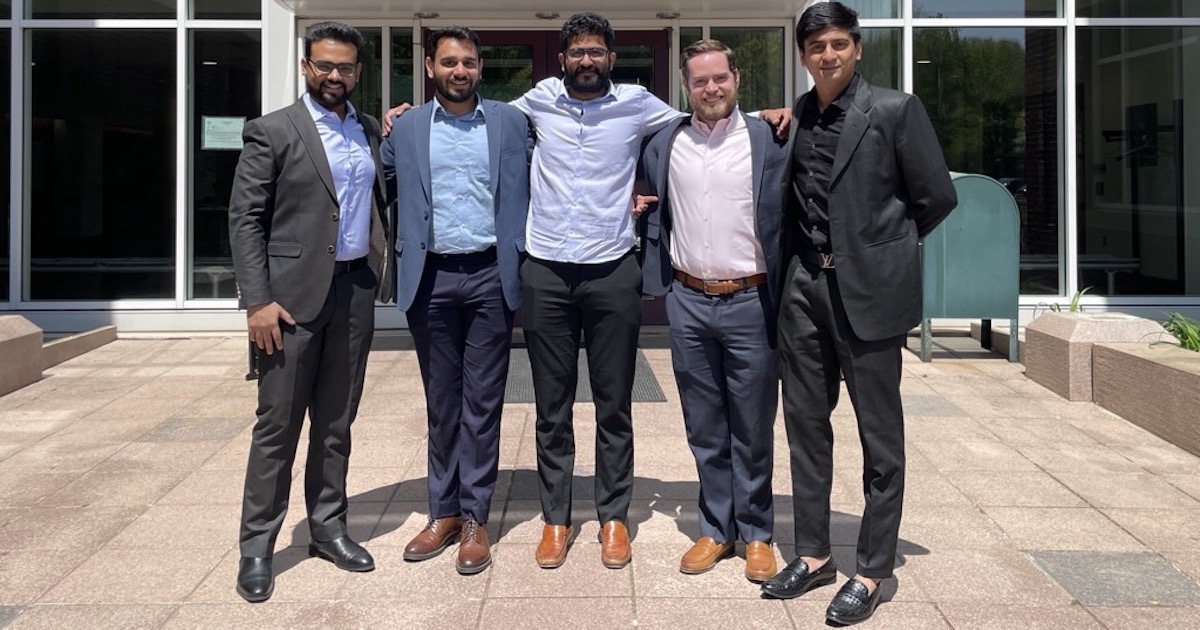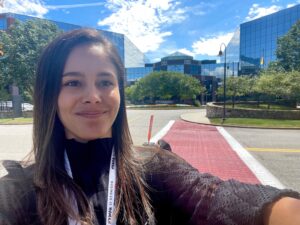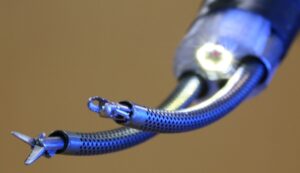A Look into the Experiential Learning Experience at Babson

Experiential learning isn’t just a buzzword. It’s a top consideration for students looking to start business school—and it’s something businesses aren’t opposed to, either.
In the first article in our two-part series on experiential learning, we surveyed a few of the companies that Babson College graduate students have worked with in Babson Consulting Experience (BCE), an application-based program managed by the Office of Experiential Learning. Here, in the second installment, you’ll hear from two more companies, as well as two students who have made the most of the program.
1. Staples
Before Melany Vargas MBA’24 set foot at Babson, she already had heard great things about the Babson Consulting Experience from her sister, a Babson alumna. Vargas, who is from Peru, was enthusiastic to start her consulting experience for Staples, which fit with her goal of working with a major U.S. retail company.
Her BCE team worked to identify new market opportunities for the university audience, using Babson as a testing ground. The students conducted research, worked closely with Staples marketing executives, and later, presented their recommendations to Staples and Babson President Stephen Spinelli Jr. MBA’92, PhD, who was invited to join and collaborate with the office supplier. It was the most exciting part of the experience, Vargas said.

Melany Vargas MBA’24 knew about the Babson Consulting Experience from her sister, who also attended Babson.
A firm believer in being proactive, Vargas leveraged her BCE experience to secure a summer internship for the promotional products department at Staples, and she continues to work there part time during the fall semester. “Overall, the experience (has been) exceptional,” she said.
For students interested in the course, she highlights the opportunities to expand their network, “think like a manager,” and to solve real-world problems that could arise later in their career. “If you are international, this will be your initial exposure to the U.S. market … affirming your capability to thrive in any environment,” Vargas said.
2. Coils to Locs
Dianne Austin had faced the challenges of hair loss firsthand. As a survivor of cancer, she found it difficult to find high-quality wigs covered by health insurance. So, together with her sister, she founded Coils to Locs in 2019.
Austin then participated in Babson’s Black Women’s Entrepreneurial Leadership (BWEL) program, where she embraced the entrepreneurial mindset. “It’s important to be able to learn from mistakes, be flexible, nimble, inquisitive, action oriented, (and) not risk averse,” she said.
In their experiential learning experience with Coils to Locs, Babson graduate students worked to establish partnerships with health networks, recommend marketing strategies, and work in product development, including starting the process of white labeling wig and scalp care products.
“It has been so beneficial to our ability to keep moving the business forward,” she said of the consulting teams. “The work that the consultants performed has saved us a lot of time.”
“If you are international, this will be your initial exposure to the U.S. market … affirming your capability to thrive in any environment.”
Melany Vargas MBA’24
3. Raytheon BBN
Arkadev Putatunda MBA’24 brings a telecommunication engineering background to his BCE experience at Raytheon BBN, a subsidiary of Raytheon.
There, his team was tasked with crafting a go-to-market strategy for one of the defense contractor’s proprietary solutions. They quickly immersed themselves with hands-on experience in research, customer segmentation, competitor analysis, and business model recommendations—all ideas that Raytheon would consider going forward.
Putatunda’s main takeaway? “The importance of teamwork,” he said. “We (could not) have a successful deliverable without each member of the team contributing to the overall success.” He also underscores the importance of Babson resources—the library, Speech Center, Writing Center, and, of course, professors—and encourages any student taking the course to do the same.
The entire hands-on learning experience opened doors for Putatunda: first, as a “perfect segue” for summer internship at EY, and now, as a strategy consulting intern at Dover Microsystems.
“This internship would not have been possible without the network I was able to build over the course of my BCE project, and I am thankful for the opportunity,” he said.
4. Boston Children’s Hospital
Pierre Dupont runs a research lab at Boston Children’s Hospital, where he and his team have recently developed a neurosurgical robot recently featured in the Science Robotics journal. Designed to reduce the invasiveness of removing brain tumors, tiny robot arms and a surgeon-controlled joystick are a hallmark of this innovation, which was born from a growing need of neurosurgeons.

A close-up photo of the neurosurgical robot designed to remove tumors in the brain.
This fall is the first semester in which Dupont’s lab will work directly with Babson graduate student consultants, as part of BCE. A team of five students will work on a go-to-market strategy for the robot, including speaking with hospitals and companies in the neurosurgical space.
“Their goal will be to figure out if a successful business model can be made for the robot. It is their expertise and energy that is going to make this possible,” Dupont said. “They are a fantastic and enthusiastic group.”



